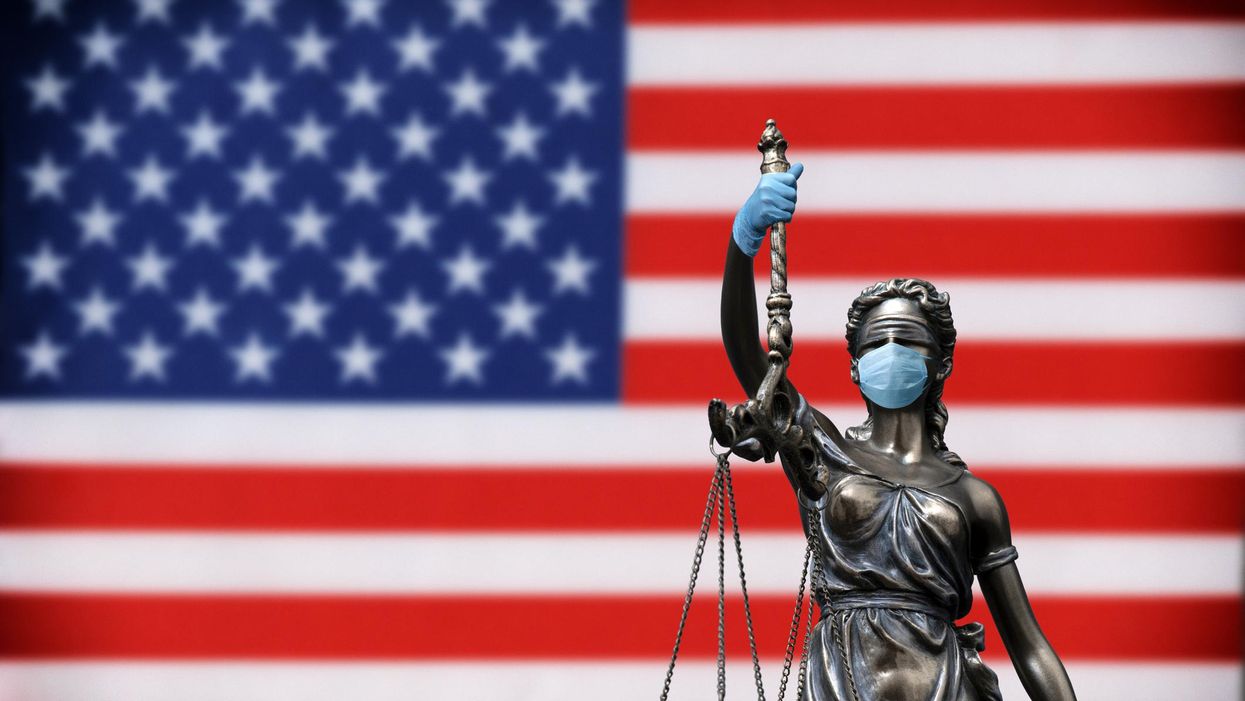Over the past year, states have issued hundreds of rule changes in response to the coronavirus pandemic, covering issues from public health and safety to business protocols to election procedures.
But one consequence of some of these emergency orders has been a shift in the balance of power at the state level. Ballotpedia reported Thursday that eight states have seen the governor's authority weakened by Covid-related legislation.
Governors generally have the authority to declare a state of emergency in cases of natural disasters, disease epidemics and other threats to public health. And in the early days of the pandemic, nearly all states issued lockdown or stay-at-home orders.
But in the months following, some states saw conflict between the executive and legislative branches on how to proceed with the orders. Lawmakers introduced hundreds of bills to limit gubernatorial emergency powers, and ultimately 10 were enacted in eight states.
Surprisingly, in most of those eight states, the same political party controlled the governorship and the legislature. Three were run by Republicans: Arkansas, Ohio and Utah. Two were Democratic: Colorado and New York. And the remaining three have Democratic governors and Republican-majority legislatures: Kansas, Kentucky and Pennsylvania.
Here is a rundown of how these eight states have placed new limits on the governor's emergency powers authority:
Arkansas
Last month, the Legislature passed and Gov. Asa Hutchinson signed legislation that limits statewide emergency declarations to 60 days unless extended by the governor. The new law also allows lawmakers to block any state of emergency extensions made by the governor.
Colorado
Last summer, the General Assembly passed and Gov. Jared Polis signed a bill that requires the governor to communicate with and provide information to state lawmakers following an emergency declaration.
Kansas
Two new laws regarding emergency powers have been enacted in the last year in Kansas. The first, approved last summer, extended the coronavirus state of emergency, while banning Gov. Laura Kelly from declaring any new states of emergency in 2020 without first receiving approval from the state finance council. The law also limits how long the governor can close businesses and terminates emergency proclamations after 15 days unless extended by the Legislature.
The second measure also extended Kansas's state of emergency, while further limiting the governor's emergency powers. It allows anyone burdened by executive order, school board policy or county health directive to file a civil action in court, which must be heard within 72 hours. The law also empowers the Legislative Coordinating Council to override gubernatorial executive orders.
Kentucky
In February, the Republican-majority General Assembly enacted two new restrictive bills by voting to override Democatic Gov. Andy Beshear's vetoes. The first law limits a governor's emergency orders to 30 days unless extended by the legislature. It also requires the governor to receive approval from the attorney general before suspending a statute via executive order during an emergency.
The second law grants legislative committees more oversight of the governor's emergency regulations and requires public input for some orders.
New York
Last month, the Legislature and Gov. Andrew Cuomo approved a new law that repeals a provision of a law passed last year that extended the governor's executive order powers during a pandemic. The new law also allows the Legislature to revoke any executive order through concurrent resolution. It also requires the governor to create a searchable website that tracks all executive actions made during a pandemic.
Ohio
The Legislature voted last month to override Gov. Mike DeWine's veto of a bill that restricts the governor's authority over public health orders. The new measure allows the Legislature to cancel public health orders after 30 days and requires the governor to renew such orders every 60 days. It also establishes a legislative panel overseeing the governor's public health orders.
Pennsylvania
Last summer, the Pennsylvania General Assembly enacted a law prohibiting the governor from directing agencies to ignore public records requests during states of emergency. At the time, Democratic Gov. Tom Wolf said he disagreed with the bill, but would "err on the side of transparency" and allow it to become law without his signature.
A constitutional amendment related to emergency declarations was also certified for the May 18 ballot. If approved by voters, the amendment would limit the governor's emergency declarations to 21 days unless the legislature extends them. It would also allow the General Assembly to pass a resolution, without needing the governor's signature, to extend or terminate an executive order during an emergency.
Utah
Last summer, the Legislature and Gov. Gary Herbert approved a measure that requires the governor to notify the legislative pandemic response team within 24 hours of taking any executive actions in response to a public health crisis, unless there is imminent threat to life or property. The law also allows the Legislature to issue a joint resolution to block any pandemic executive actions.




















Trump & Hegseth gave Mark Kelly a huge 2028 gift